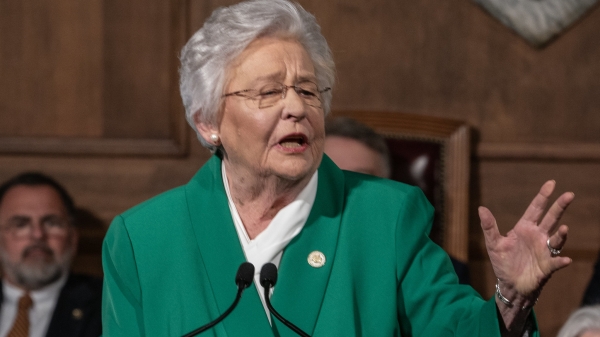By James L. Dill, Ed.D.
Executive Director, Alabama Council of Community Mental Health Boards
Alabama’s General Fund Budget is not sufficient to provide the essential functions of state government. Governor Bentley has said so. The House and Senate Budget Chairs have demonstrated so by introducing a General Fund Budget that is based on available revenues for FY 16. This Budget would decimate the services provided by some state agencies and would cause much pain and suffering for many of the state’s most vulnerable citizens, and would potentially compromise the quality of life for all Alabamians.
So how did the State of Alabama get into such a mess? For many years the GF Budget has been propped up with numerous, non-sustainable revenue sources. These “band aid” approaches have been exhausted. The Federal Stimulus Program has expired, the Rainy Day Fund has been borrowed to the maximum amount allowed by law, and the day of reckoning for the General Fund has finally arrived.
Signing a pledge promising no new taxes has become a requisite for being elected to office in the majority of legislative districts in Alabama.
In addition to the pledge signed by some, all lawmakers are required to take an Oath of Office prior to assuming the duties of the office of legislator. The Oath of Office is not to a party or organization. It is an oath to uphold the Constitution of the United States, the Constitution of the State of Alabama, and to faithfully discharge the duties of the office. This “Oath” is sworn to before God. The duties of the office of legislator include assuring sufficient revenues to meet the essential functions of state government.
As attested to by the Governor and Budget Chairs, the State of Alabama will not have sufficient revenues to satisfy the essential functions of state government in FY 16. As a case in point, consider the appropriation that is being considered for the Department of Mental Health. The current budget proposal is to cut mental health $35m from the General Fund. A funding cut of that amount will result in a corresponding loss of federal dollars, increasing the total funding loss to approximately $100m. The Department of Mental Health was cut $40m in 2009. A reduction in services was avoided by closing Searcy and Greil Hospitals and transferring patients to appropriate and more cost efficient community services. The Department has no more hospitals that can be closed that would again avoid service cuts. The number of state hospital beds has been reduced from about 8,000 in 1970, to about 500 today. All of the state’s Developmental Centers have been closed. The savings to the General Fund Budget due to this shift to community care may be measured in the hundreds of millions of dollars.
Title 22-50-15 of the Alabama Code, establishes residential care, under the jurisdiction of the Department of Mental Health, as an “essential function of state government”. Mental Health Commissioner Jim Reddoch informed the Joint Legislative Budget Committees on April 8th, that the currently proposed General Fund Budget will result in the termination of services to more than 24,000 individuals with serious mental illness, and over 1,100 persons with intellectual disabilities. These individuals will lose their treatment, their medications, and approximately 2,000 will lose their place to live. Homelessness, incarceration, or a return to state hospitals, are their only options. Alabama’s mental health system was under federal court jurisdiction from the early 1970’s until 2002. Passage of this General Fund Budget will assure a fast track back to federal court. The state has already been so notified.
Resolving Alabama’s General Fund shortfall will not be easy. Faithfulness to the pledge may prevail, in spite of oaths of office and scriptural imperatives. Revenue increases may ultimately have to come from measures other than tax increases. But if funding reductions must ultimately be made, eliminating treatment, care, food, and shelter, for Alabama’s most vulnerable citizens would be inhumane, immoral, a violation of the oath of office, and contrary to scripture. Romans 13 informs us that government is established by God, for our good, and for His purposes. Matthew 25 makes it clear that we are commanded to care for “the least of those among us”. When we care for those in need, great reward is promised, but judgment is pronounced when we choose not to do so.




















































